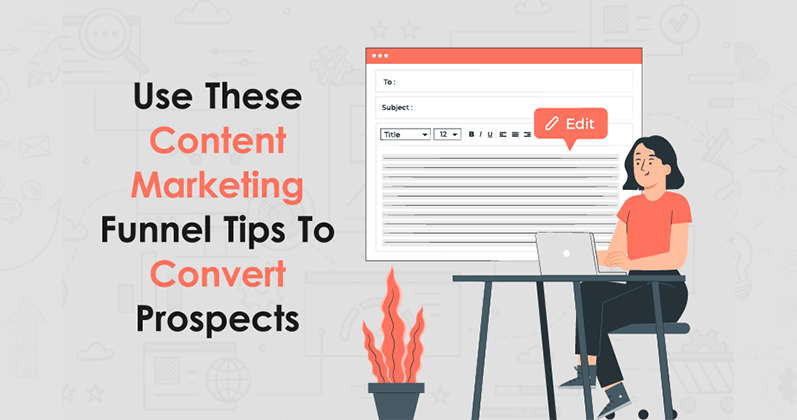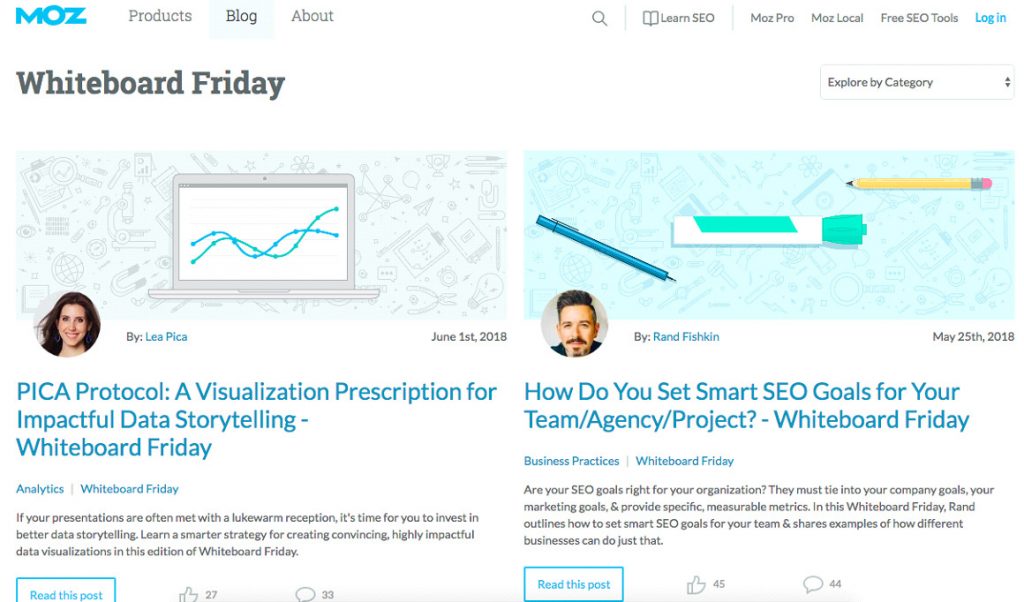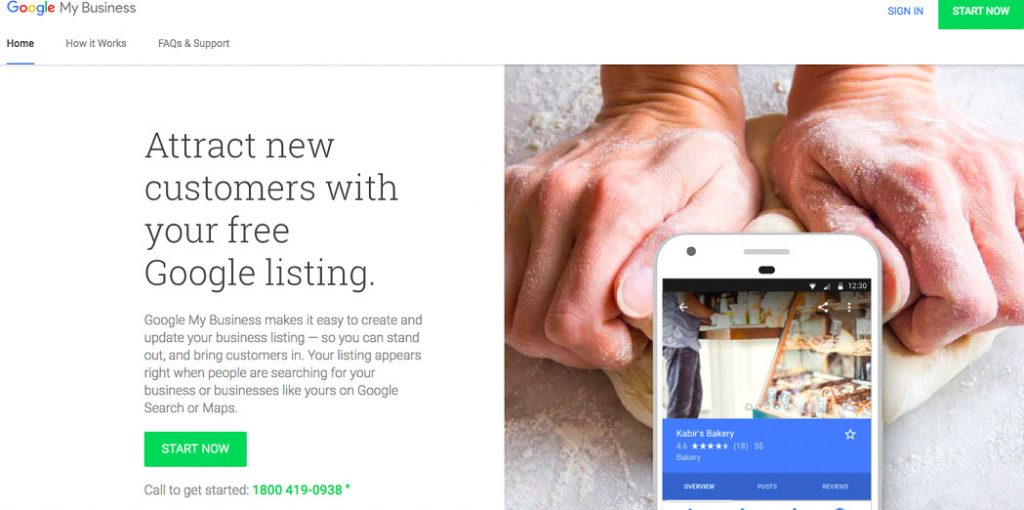Things to Consider in Choosing an eCommerce Platform
When selecting an eCommerce platform, make sure to evaluate the factors mentioned below. These factors will directly impact your online store’s success and increase your sales. Let us understand more about the key considerations when choosing an eCommerce Platform:
1. Mobile-Friendliness
With the ever-growing popularity of smartphones and tablets, any good eCommerce platform should be mobile-friendly. The platform should have a responsive design so that your store looks great and works seamlessly on different devices.
When considering the look and UI/UX of the platform, here are some additional aspects to think about:
- Ease of Navigation: Make surethe platform can easily provide smooth navigation on mobile devices, despite their screen size being smaller than the average desktop.
- SEO Optimized Product Pages: Customers will find it easy to read and navigate the product pages on their mobile devices if optimized with SEO best practices in mind. Product pictures accompanied by descriptions are also essential.
- Smooth Checkout Process on Mobile: The checkout process must be smooth and optimized for mobile users to avoid cart abandonment.
- Mobile-Specific Features: Some mobile-specificfeatures include tap-to-call, tap-to-email, location-based services and more.
2. Analytics
A strong analytics suite provides important insights into how your website is performing and augments data-driven decisions.
Look for a platform offering the following features in real-time:
- Real-Time Analytics: Website traffic, sales, and customer behavior are analyzed in real-time, thus enabling the identification of trends and immediate measures of adjustment.
- Detailed Reporting: Developing in-depth reports regarding conversion rates, customer acquisition costs, product performance, and other metrics on customer demographics.
- Google Analytics Integration: The e-commerce site should be integrated with Google Analytics, making tracking and analysis much deeper and thus giving even more far-reaching insights into your website’s performance.
- Customizable Dashboards: Create custom dashboards to visualize key metrics and effectively track your store’s development.
3. Easy To Use
A user-friendly platform will save you a lot of time and energy. Some aspects to consider are:
- Intuitive Interface: The platform should boast an uncluttered and intuitive interface that will be pretty easy to use, even for non-technical users.
- Customization Options: The platform should allow users to customize the look and feel of the store to match their brand and preferences.
- Learning Curve: Identify the platform’s learning curve so you can approximate when you will be able to get up and running and start selling.
- Drag and Drop Functionality: The platform offers drag and drop for seamlessly customizing your store’s layout and content.
4. User Experience
A great user experience is at the heart of driving sales and customer loyalty. Seek a platform that provides you with the following:
- Fast Loading Times: Your website should load quickly, or it will irritate customers and potentially hurt sales.
- Seamless Checkout Process: Checking out should be easy and secure, taking no more steps than necessary to complete a sale.
- Product Search Functionality: Strong search functionality enables customers to find exactly what they are looking for in the least amount of time and effort.
- Personalized Recommendations: Personalization features recommend products based on customers’ preferences and purchase history to enhance the shopping experience.
5. Payment Options
Having many payment options is highly necessary, owing to different customer preferences. The following must be considered:
- Accepted Payment Methods: The platform should support popular credit cards, PayPal, digital wallets such as Google Pay and Apple Pay, and local options.
- Security: The platform’s security level is very important. PCI DSS compliance is needed to secure customer payment information.
- Transaction Fees: There are several platforms that will charge various transaction fees for use, comparing their overall cost for processing payments is critical.
- Payment Gateways: The platform’s integration with a number of payment gateways would be taken into consideration because of flexibility and compatibility concerns.
6. Platform Support
Reliable customer support sorts out problems and keeps the online store running smoothly. One should look out for a platform offering:
- 24/7 Support: Ensure that the platform provides 24/7 support so that you can reach them anytime, whatever the problem.
- Many Support Channels: Customers should be able to choose from many support channels, such as live chat, email, and phone support.
- Knowledge Base: It is supposed to be a full-bodied knowledge base that should, in addition to answering frequently asked questions, help users solve some issues themselves.
- Community Forums: Check if there is some sort of discussion board or online community relative to an eCommerce platform, as this is the place where one would like to participate in, consult with, and share experiences with other users.
11 Best Ecommerce Platforms in 2024
1. Shopify
Shopify is a leading eCommerce platform that boasts ease of use and a wide variety of apps available in its marketplace. From a myriad of features related to customer support, payment options, shipping, and marketing tools, Shopify is ideal for small-scale businesses as well as large-scale enterprises.
Key Features
- User-Friendly Interface: Shopify is known for its intuitive interface, making it easy for both beginners and experienced merchants to set up and manage their online stores.
- App Store: Shopify boasts of a huge app store containing thousands of apps, ranging from marketing and shipping to customer support and inventory management, to improve the functionality of your store.
- In-Built SEO Tools: Shopify provides inbuilt SEO tools for optimizing your store for search engines.
- Quick and Easy Transactions: Shopify is integrated with Shopify Payments, a built-in payment processor. However, Shopify works with most of the popular payment processors out there.
- Mobile Commerce: Shopify sites are totally mobile-optimized. That means you can operate your store and even drive sales literally anywhere, anytime.
Pricing Details
- Basic: $29/month
- Shopify: $79/month
- Advanced: $299/month
- Enterprise: Custom Pricing
2. BigCommerce
BigCommerce is another powerful eCommerce platform, especially for businesses that are likely to grow very fast. Advanced features such as abandoned cart recovery, real-time shipping rates, and paid-for built-in SEO tools ensure this. BigCommerce works best for businesses that require long-term scalability and customizability.
Key Features
- Scalability: It also comes with scalability for high-volume online stores, which will be good for companies expecting rapid growth.
- Advanced Features: Some of BigCommerce’s advanced features include abandoned cart recovery, real-time shipping rates, and built-in SEO tools.
- Channel Integration: BigCommerce integrates well with various sales channels such as Amazon, eBay, and Facebook.
- Customizable Themes: BigCommerce offers a wide range of themes that can be customized to help one come up with an exclusive online store.
- Seamless Support: BigCommerce supports its customers 24/7 to answer any of your queries or resolve issues.
Pricing Details
- Standard: $29/month
- Plus: $79/month
- Pro: $299/month
- Enterprise: Custom pricing options are available
Shopify and BigCommerce make it easy for users to set up and manage a store with lots of features and apps baked into their core functionality. Overall, Shopify would be a good fit for companies of any size, while BigCommerce is better positioned for those expecting businesses that grow very rapidly.
3. WooCommerce
WooCommerce is an open-source eCommerce platform that is highly flexible and customizable. It integrates seamlessly with WordPress, making it a popular choice for businesses that already have a WordPress website. WooCommerce offers a wide range of extensions and themes, allowing you to tailor your store to your specific needs.
Key Features
- Complete Control: WooCommerce puts you in charge, allowing you to design a store that perfectly suits your needs and preferences.
- Adaptable to Your Business: WooCommerce can be easily customized to fit the specific needs of your online store.
- Community Support: WooCommerce has a very extensive and active developer and user community, which guarantees long-term support and means a plethora of resources.
- Integration with WordPress: WooCommerce is an extension of WordPress, so integrating an e-commerce platform with your blogging site or any other website on WordPress is smooth and simple.
- Affordable: WooCommerce is cheaper than Shopify or BigCommerce. You will be charged only for the cost of hosting a domain.
Pricing Details
- Free: WooCommerce itself is free to be downloaded and installed.
- Hosting and Domain: Hosting and the name of the domain have to be bought separately.
- Extensions and Themes: While WooCommerce is free, you may need to purchase premium extensions and themes to add specific features or customize your store’s appearance.
4. Wix
Wix is also an online website builder that now offers eCommerce features. It is quite user-friendly and has drag-and-drop features, which is ideal for a business desiring a professional website without having to learn coding. Wix also has many templates and apps available to make your store exactly how you envision it.
Key Features
- Drag and Drop Editor: Wix provides a drag-and-drop editor that allows users to create a professional website in minutes without touching any code.
- App Market: With thousands of applications in the Wix App Market, one can easily add various functionalities to his/her site, covering marketing, social media, customer support, and analytics.
- Mobile Optimization: Wix creates all websites that are mobile-optimized, allowing for a great user experience no matter which screen it appears on.
- In-built SEO tools: Wix has inbuilt SEO tools that enhance the website’s ranking in search engines.
- Free Plan: It has a free plan, with a few features deactivated that budget-friendly owners can manage.
Pricing Details
- Light: $2.37/month
- Core: $4.76/month
- Business: $9.53/month
- Business Elite: $19.07/month
5. Squarespace
Squarespace is another up-and-coming website builder with eCommerce features. It’s also known for its gorgeous design templates and general intuitive interface. It is ideal for businesses that want to create a stylish online store that looks professional.
Key Features
- Modern Design Templates: Squarespace is famous for its pool of modern and stylish design templates.
- All-In-One Platform: Squarespace is an all-inclusive platform that provides everything for building and managing your website, from blogging to e-commerce to marketing tools.
- Integrated Analytics: Offering real tracking of how the website is performing, Squarespace has built-in analytics for data-driven decision-making.
- Customer Support: Day-and-night customer support is offered to users if they have questions or issues.
- Free Trial Available: Yes, this tool offers a free trial so that you can get a sneak peek of its capabilities. The trial is 14 days long and allows you to test the experience before committing to it.
Pricing Details
- Personal: $25/month
- Business: $36/month
- Commerce Basic: $40/month
- Commerce Advanced: $72/month
If you are looking for something basic and super easy, Wix or Squarespace is fine, or Square Online if you are currently integrated with Square’s point-of-sale system. Wix and Squarespace offer hundreds upon hundreds of templates with various third-party apps to choose from, while Square Online has close integration with the Square point-of-sale system.
6. Adobe Commerce
Adobe Commerce is a widely used enterprise-level e-commerce platform, earlier known as Magento. It is focused on large businesses and has some advanced features, including B2B functionality, multi-store support, and integration with other Adobe products. For companies that want to provide a high level of adjustability and scalability, Adobe Commerce will be a good fit.
Key Features
- Enterprise-Level Platform: Adobe Commerce is designed for large-scale online businesses with complex requirements.
- Scalability: Adobe Commerce is highly scalable, allowing you to handle high-volume traffic and large product catalogs.
- Customization: Adobe Commerce offers a high degree of customization, allowing you to tailor your website to your specific needs.
- B2B Features: Adobe Commerce includes more built-in B2B features like quote management, customer groups, and buying order processing. This is because of the integration with Adobe Experience Cloud, which extends it to products like Adobe Analytics and Adobe Target.
Pricing Details
- Adobe Commerce Pro: Custom pricing
- Managed Services: Custom pricing
Adobe Commerce is a bit more complex and costly than the other options listed. However, if a business is seeking an enterprise-level powerful platform, It would be a good choice. This platform offers more advanced features, such as B2B functionality, multi-store support, and integrations with other Adobe products.
7. Volusion
Volusion is an eCommerce-hosted platform that offers everything a person may need from smooth checkout process and shipping down to the marketing tools and customer support. Volusion is the place for businesses that seek ease of use and good customer service.
Key Features
- Drag-and-Drop Editor: Volusion offers the easiest drag-and-drop editor to create a professional website without requiring any knowledge of coding.
- App Marketplace: With the app marketplace readily available in Volusion, there are a few apps you can add to extend the functionality of your store-like marketing and shipping integrations, along with customer support options.
- Mobile Optimization: Websites on Volusion are automatically optimized for mobile use, therefore providing the best user experience on all screens.
- Inbuilt SEO Tools: With Volusion, you can come up with SEO enhancements. For instance, it has embedded SEO improvement tools.
- Customer Support: It provides 24*7 customer support for any query or issue one encounters.
Pricing Details
- Personal: $29/month
- Professional: $79/month
- Business: $299/month
8. OpenCart
OpenCart is an open-source platform for eCommerce that is very flexible and adjustable. It provides an enormous variety of extensions and themes to make your store look just as you need it to. OpenCart will be perfect for any trading business in need of an affordable yet customizable platform.
Key Features
- Tailored to Your Needs: With OpenCart, you can easily customize your online store to match your unique brand and business goals.
- Versatile Platform: OpenCart offers the flexibility to adapt to your changing business requirements.
- Community Support: OpenCart has an enormous and active community of developers and users, which means you will enjoy extensive support and resources.
- Cost-Effective Solution: It is generally cheaper than hosted solutions such as Volusion and Shopify since you just pay for hosting and domain costs.
- Theme Marketplace: OpenCart has numerous themes. You can choose any of them to create the look you need for your store.
Pricing Details
- Free: OpenCart is free to download and install.
- Hosting and Domain: You will have to be bought separately.
- Extensions and Themes: While OpenCart is free, you may need to invest in a number of premium extensions and themes to add features or customize your store look.
9. PrestaShop
This open-source eCommerce platform is highly flexible in its design and, therefore, suitable for many functions. PrestaShop gives room for many different features, such as secure and flexible payments, shipping, marketing tools, and customer support. It best suits those businesses looking for scalability and customization on the platform.
Key Features
- Flexibility at Your Fingertips: PrestaShop allows you to modify and adapt your store to fit your specific requirements.
- Scalability: Prestashop is intended for online shops with high volume, so it’s good if that business is on a trajectory to grow very fast.
- Customization: Prestashop allows a great degree of personalization according to your specific needs.
- Community Support: PrestaShop has a vast community of developers and users; therefore, the support and resources are widely available.
- Theme Marketplace: PrestaShop presents an incredible number of themes that you can leverage for your store’s look and feel.
Pricing Details
- Free: PrestaShop can be downloaded and installed free of charge.
- Hosting and Domain: The hosting and domain name should be purchased separately.
- Extensions and Themes: While PrestaShop itself is free, you might need to pay for premium extensions and themes in case specific features or that look you want aren’t included.
For some people, WooCommerce, OpenCart, and PrestaShop would work great since one wants a more personalized open-source platform. It is a well-known choice for companies that already have WordPress websites. OpenCart and PrestaShop are good choices if your company needs a highly scalable and customizable platform.
10. Square Online
Square Online is a simple, user-friendly eCommerce platform that is seamlessly integrated with the Square point-of-sale system. It’s ideal for businesses with an in-store presence that wants to expand online easily and smoothly.
Key Features
- Integrated with Square POS: As its name suggests, Square Online is native to Square’s point-of-sale system, making it suitable for businesses with a physical store.
- Mobile-Friendly: Square Online is designed to work on mobile devices, enabling you to make sales while on the move and manage your store from anywhere.
- Built-In Marketing: Make use of the in-built market choices with Square Online, with features such as email marketing and linking up through all kinds of social media.
- Streamlined Payments: Square Online offers a seamless payment experience, making it easy for your customers to checkout.
- Free Plan: The Square Online free plan comes with limited features, making it highly affordable.
Pricing Details
- Free: Very basic website with minimal features
- Plus: $29/month
- Premium: $79/month
11. Big Cartel
Big Cartel is a very basic, cheap e-commerce platform made specifically for small businesses, mostly with a limited product line. It’s a great solution for businesses who want a very basic platform without all the frills.
Key Features
- Simple and User-Friendly: Big Cartel is a platform designed to be very simple and user-friendly, perfect for even those who are new to the world of website design.
- A Bit Limited: The app is so much better for smaller companies that concentrate on a very limited amount of items that they offer.
- Affordable Pricing: Big Cartel does offer some very affordable pricing plans, making it excellent for those on a very tight budget.
- Mobile-Friendly: Big Cartel sites come out-of-the-box optimized for mobile devices.
- Secure and Convenient Payments: Big Cartel partners with Stripe to provide a safe and easy payment experience for your customers.
Pricing Details
- Gold: Free with a basic no-frills plan
- Platinum: $15/month
- Diamond: $30/month
In the final turn, Volusion or Big Cartel would be a good choice if you are short on budget or have a limited product range. Both of them offer quite affordable pricing plans and are easy to use.
















